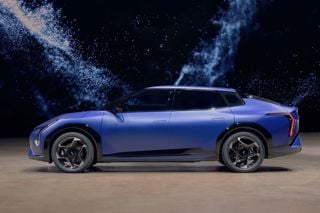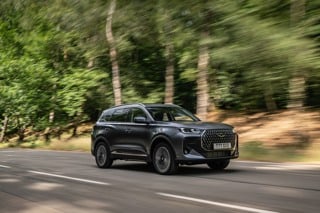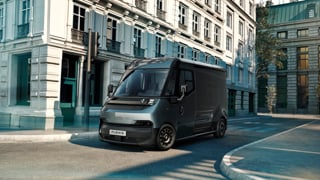Efficient petrol-engined vehicles can offer lower cumulative CO2 emissions than battery electric vehicles on duty cycles below 12,500 miles, according to a new review.
Andy Eastlake, managing director of the Low Carbon Vehicle Partnership, and Jane Patterson, of Ricardo Strategic Consulting, presented a detailed review of more than 100 existing studies of wholelife carbon impacts to last week’s Cenex-LCV2018 event.
Their report on lifecycle assessment (LCA) took a holistic approach to the analysis of a product’s total environmental impact, looking beyond tailpipe emissions to factors such as vehicle and energy production.
It looks across a broad range of vehicle sectors and found that the relative contribution of each vehicle lifecycle stage is highly dependent on the vehicle type and powertrain technology, as well as what assumptions are made about a vehicle’s operational life, mileage and duty cycle.
The study focuses on providing insights into how lifecycle CO2 emissions vary by vehicle segment and powertrain technology.
It considers ‘L-category’ (micro) vehicles, passenger cars, heavy duty trucks and buses across four lifecycle stages – vehicle production, fuel production, vehicle use and vehicle end-of-life.
For larger, heavy duty trucks, lifecycle CO2 emissions are overwhelmingly from vehicle use (>95%); unsurprising given the high utilisation and lifetime mileages of these types of vehicles. Using lower carbon fuels and energy sources will deliver the greatest carbon reductions in the near term.
For smaller vehicles, such as passenger cars and micro vehicles, there is much greater sensitivity in each life cycle stage; often more than 50% of the overall impact comes in the manufacturing stage.
The report reached the conclusion that heavy duty vehicles produce a tenth of less of the emissions compared to passenger cars on account of their high mileages and utility.
The data also revealed that below duty cycles of 12,500 miles, efficient petrol engines offer lower cumulative CO2 emissions than BEVs, on account of the increased carbon costs with current cell technology.
Eastlake said: “Many studies have looked at the environmental impacts of passenger cars, but far less is known about the life cycle sensitivities of other road vehicles.
“This work shows that vehicle electrification using ‘right-sized’ batteries should progress hand-in-hand with low carbon fuels and energy and production innovation, to deliver the biggest greenhouse gas savings across the whole road sector.”























Tom - 24/09/2018 16:32
Interesting headline that I’m sure the petrol heads will repeat in the pub. Perhaps the need for a “Total carbon cost of ownership” tool.